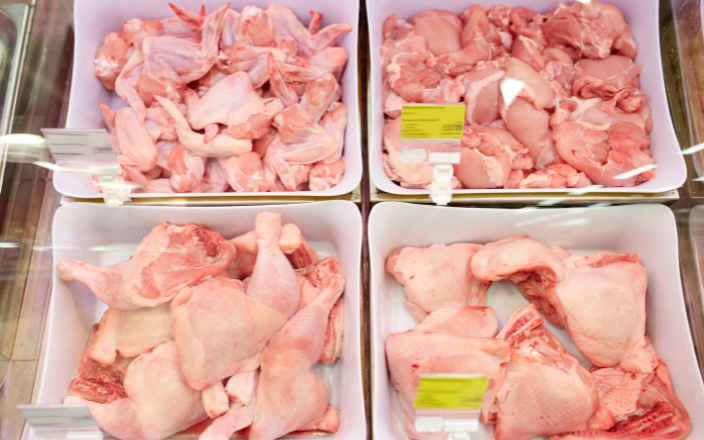Egyptian poultry farmers are currently facing significant financial challenges due to the government’s policy of allowing large-scale imports of frozen chicken. This situation has led to substantial losses for local farmers, threatening the sustainability of the domestic poultry industry.
For the second consecutive season, Egyptian poultry farmers have been struggling to compete with the influx of cheaper imported frozen chicken. According to Tharwat Al-Zaini, Vice President of the Egyptian Poultry Producers Union, local farmers are losing approximately 7 Egyptian pounds (US$0.14) per kilogram of chicken in live weight. This financial strain is putting the very survival of Egypt’s poultry industry at risk.
In 2023, Egypt’s chicken meat production was estimated at around 1.59 million tonnes. The country had nearly doubled its poultry production between 2010 and 2019, but in the past five years, production has stagnated. The situation worsened in June 2023 when the Egyptian government temporarily lifted duties on frozen chicken imports, primarily benefiting Brazilian poultry producers who supply the bulk of these imports. Local traders reported that Brazil delivered approximately 200,000 tonnes of poultry to Egypt last year, significantly increasing overall import levels.
The cost of producing broiler meat in Egypt is about 74 Egyptian pounds (US$1.5) per kilogram, while the price of imported frozen chicken is around 66 Egyptian pounds (US$1.36) per kilogram. Despite daily price fluctuations, imported poultry remains consistently cheaper than locally produced options. This price disparity makes it difficult for local farmers to compete, leading to financial losses and a potential decline in domestic poultry production.
Al-Zaini has called on Egyptian authorities to address this issue, emphasizing that maintaining food security requires the survival of local poultry breeders. He suggested that the government should allow local farmers to slaughter and freeze poultry during peak demand periods, storing it for release when market conditions improve. Current regulations largely prevent Egyptian poultry farmers from switching between chilled and frozen poultry production, restricting their flexibility.
In response to the crisis, many farmers have resorted to selling their products at below-market prices, fearing further declines. Al-Zaini expressed confidence that if the Egyptian government decided to halt imports, local producers could quickly scale up operations to fill the void without significant consumer impact. He added that price hikes are unlikely since the Egyptian poultry market remains largely state-controlled.
In conclusion, the overwhelming influx of frozen poultry imports is severely impacting Egyptian farmers, threatening the sustainability of the domestic poultry industry. Addressing this issue is crucial for ensuring food security and supporting local farmers who play a vital role in the country’s economy.
Sources: Available upon request.

